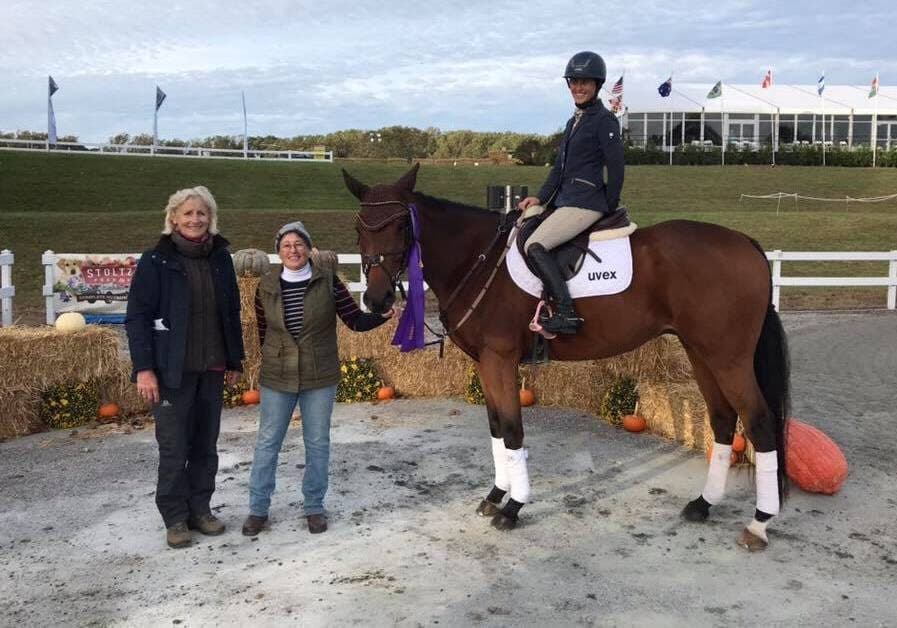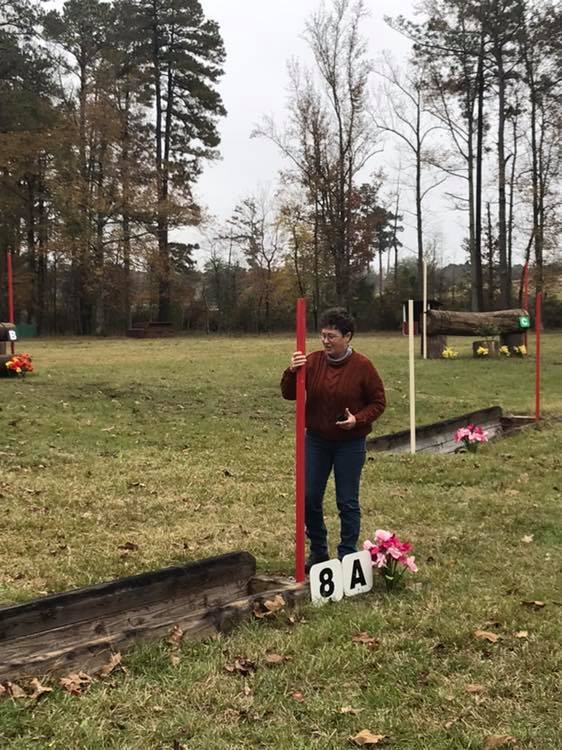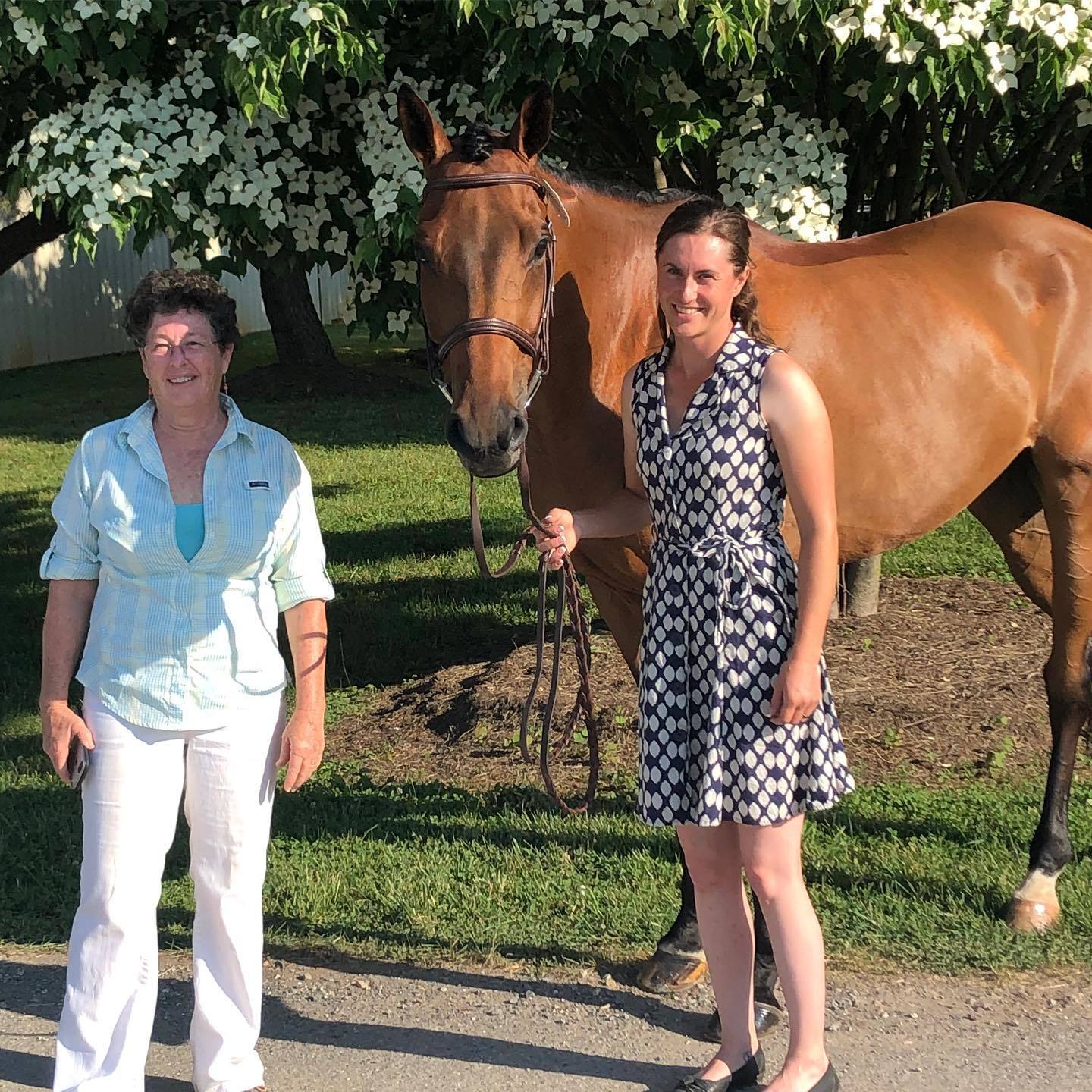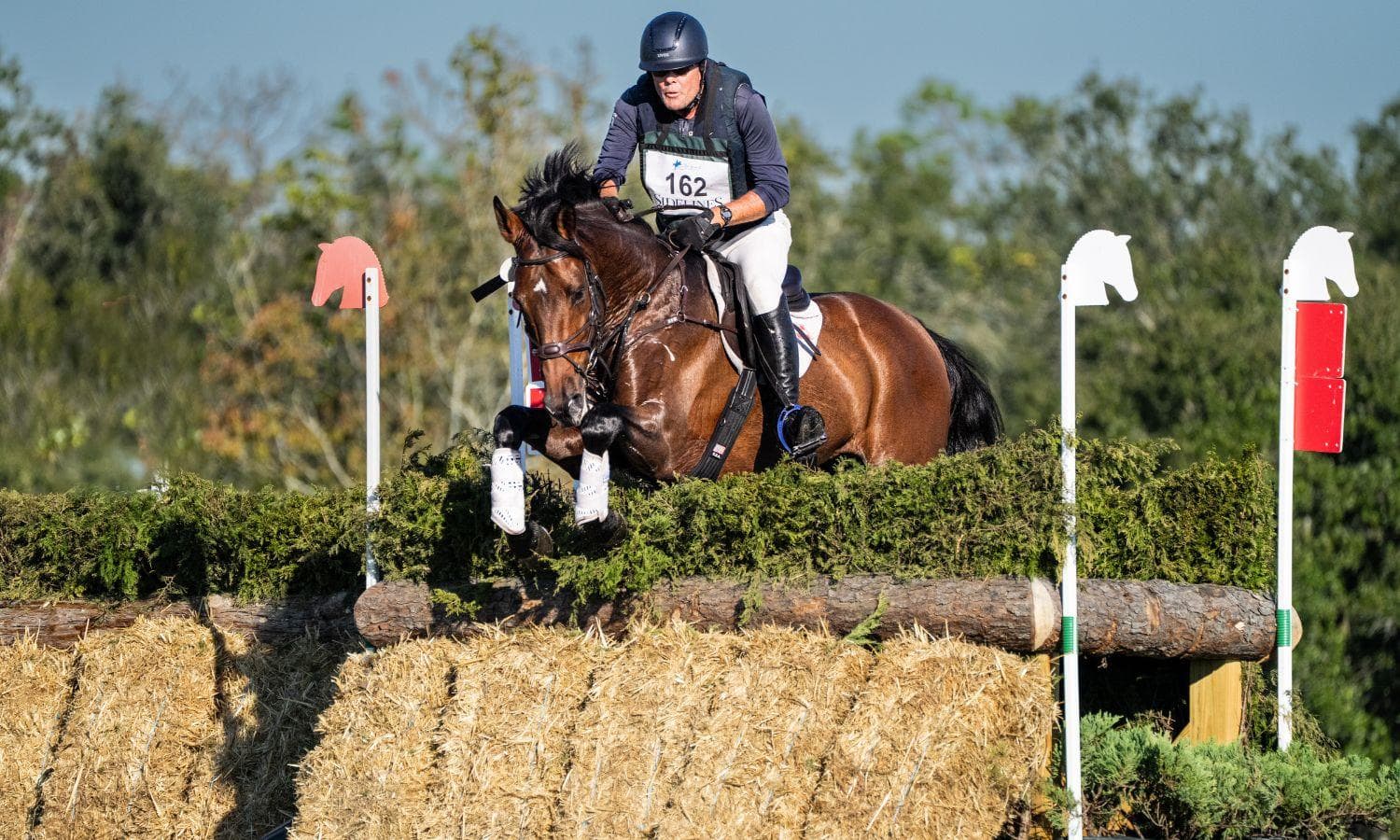Mary Quarles: USEA's Volunteer of the Month presented by Athletux

It always helps to see a warm and friendly face when heading to warm up for that all-important test or jump round. In this series, the United States Evening Association (USEA) is partnering with Athletux to feature those around us who help make these events happen, the volunteers. Without them horse shows and programs could not succeed, and these volunteers go above and beyond to make sure every rider feels comfortable and confident. Do you know a volunteer who should be nominated as Volunteer of the Month? We are looking for our next feature. Email your tips to [email protected].
This month’s Volunteer of the Month, Mary Quarles, found eventing along with many other Americans at the 1996 Atlanta Olympics. While she had been involved in horses for quite some time, it was the taste of volunteering and the taste of the sport that she got in Atlanta that paved the way for Quarles and her involvement in the sport today.
Growing up in the suburbs of Washington, D.C. in Falls Church, Virginia, didn’t exactly facilitate owning horses but Quarles was horse crazy nonetheless. “I was a horse-crazy child and I would read every single horse book out there even if it has a photo of the horse on the cover. When I was 10, the Fairfax County Recreation Department offered riding lesson packages thus my mom, my sister, and I began to take lessons,” she detailed.
After getting her toes wet, there was no going back for Quarles. She began to work as a working student in high school at a boarding barn in Great Falls, Virginia, where she received excellent instruction in both the riding and horsemanship aspect. When she was getting ready to leave for Clemson University, she found herself lucky enough to purchase her favorite school horse and thus Quarles and her new equine partner experienced life in college together.

At Clemson, Quarles earned her degree in Animal Science and met her husband. Once graduated, she and her husband moved to Gainesville where he pursued his Masters and Quarles worked at an Arabian horse farm and a Trakehner breeding farm. Over the years, she continued to ride but never in a competition setting. All those moments lead to the 1996 Games where after filling out all the applications and paperwork, she was accepted to be an equestrian volunteer.
“I was assigned the Fence Communicator job, which meant I basically had to radio in for our jump. I was at a campground type complex where parts of the jumps looked like tents and we had a huge team at our fence just like every fence did,” Quarles explained. “JJ Johnson was working control and I enjoyed it so much. It really gave me my first big volunteering role and I just loved it.”
Now, Quarles runs her breeding farm (www.ketchenplace.com) in Rock Hill, South Carolina while still volunteering as much as she can. “Volunteering is my way of still going to the events and enjoying our sport but still having a job at the same time. I love being a part of the team and I never leave an event not feeling appreciated,” she said.
Her breeding operation supplements her involvement in the sport as she breeds horses specifically for the sport of eventing. One of her favorites she bred competed up to the Advanced level and another of her favorites, Kosmo K, was seventh at the USEA Young Event Horse Championships at Fair Hill in 2018 with Kimmy Durr. Both Kimmy and her husband John Michael Durr break horses for Quarles and produce them to be sold. Kosmo has since become Kimmy’s horse and Quarles is thrilled to watch her continue to produce him.

Like many, volunteering keeps Quarles involved in the sport and she tends to go out of her way to ensure her weekends are free to volunteer. She would even take weeks off for The Fork Horse Trials when it was held at The Fork Farm in Norwood, North Carolina, to help them prepare the venue and volunteer through the weekend. “I run the farm during the week so my sister can take over on the weekends so I can volunteer,” she added. Of all the roles she fills, show jumping in-gate is her favorite because, “I get to interact with every single rider that is there, which is a big perk. Plus, then I sometimes recognize them at other events too,” she said.
Her favorite part of the sport? “It is the wonderful people that tend to be in eventing. It is a do-it-yourself mentality and it is all about the horses,” she quickly responded.
From volunteering at the 1996 Olympic Games to the first USEA American Eventing Championships at the Carolina Horse Park and the North American Junior/Young Rider Championships (now NAYC) when it was at the Virginia Horse Center, Quarles has volunteered at so many important events in U.S. eventing history. She has seen the sport evolve over the years and we are lucky to have someone so knowledgeable and so involved in the sport. Every volunteer makes a huge difference in our sport and we are proud to honor Quarles this month. She is more than deserving of this nomination and if you see her out volunteering, be sure to give her a huge thank you! Without volunteers, our sport wouldn’t exist and it is because of volunteers like Quarles that it does. Thank you to Quarles and all the volunteers!
About the USEA Volunteer Incentive Program
Volunteers are the lifeblood of our sport, the unsung heroes, and the people who make it possible to keep the sport alive. In efforts to recognize the dedication, commitment, and hard work that volunteers put into eventing, USEA formed the Volunteer Incentive Program (VIP) in 2015. In 2017, an online management portal was designed for volunteers, organizers, and volunteer coordinators at EventingVolunteers.com (available as an app for iOS and Android).
Volunteer incentives include national and area recognition, year-end awards with ribbons, cash prizes, and trophies, a top ten USEA Volunteer leaderboard, and a Volunteer of the Year award which is given to the volunteer who tops the leaderboard by accumulating the most volunteer hours over the USEA competition year. Click here to learn more about the USEA Volunteer Incentive Program.
The USEA would like to thank Sunsprite Warmbloods for sponsoring the Volunteer Incentive Program.















